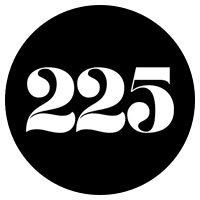Rare folk
Never go see an acoustic show in a bar and expect to really enjoy it, because some people—a lot of people—are only there to socialize. Bobby Brown might say that’s their prerogative, but come on—Bobby Brown would most likely be yelling back at those people to just shut up already. When a sole voice and acoustic guitar are in competition with dozens of alcohol-amped conversations, it just isn’t fair.
Knowing this made my first time hearing Jacob Zachary in concert justly incongruous. Hushed was the barroom. And there, with eyes wide open, they stood quietly in front of panoramic torch songs about carousels and hurricanes and unpainted girls. Most conversations were clipped sound bites on how the melodies were warm, how his voice rang true.
“You can’t expect everyone to be there because they got an invitation or saw a flyer,” Zachary says in a speaking voice soft beneath the thatch of his bird’s-nest beard. “Some people are there to get drunk and get laid at the end of the night, I guess. You just have to play to the contingency that comes and are listening and hope your CD circulates.”
|
|
The 26-year-old singer-songwriter says he has never written a happy song. Personal tragedy, drama and despair fashion far better folk stories. Ironically, his songs are more uplifting than depressing, more nostalgic than anxious. On his recent six-track EP, Dreams, Zachary echoes the soul of Iron & Wine and Glen Hansard while exploring the kind of raw Southern stories that are, by nature, more brutally honest than their Northern counterparts. The South, he goes so far as to say, cradles a truer picture of humanity.
Zachary grew up in rural Jennings, La., then Centreville, Miss., where his father was a pastor. “Most of the stuff I write has a tinge or perspective of the faith in it,” Zachary says. “I’m proud of that and honest with people about it.”
After one year at Liberty University in Virginia, Zachary left college and spent his early twenties playing music. He recorded his first full-length record in 2004, opened for Matt Pond PA, and toured the Northeast. Zachary has been back in Baton Rouge for four years, working for Vivid Ink and leading worship music at Haven, a small downtown church that meets at Buzz Café. Sometimes, Haven meets in Zachary’s living room. Through fellow musicians Peter Simon and Luke Ash, he has just begun carving a path as a local performer.
“The industry now is really unfortunate, just how hard it is to get a record made,” Zachary says. “I don’t know if it was easier back [in the early 1960s], but it seems at least people were listening. These days it’s hard to get people to listen.”
To Zachary’s advantage, successful gimmick or ironic bands are rare in indie music this year. Music followers are looking for more honesty out of their performers. Few songs get more honest than Zachary’s “The Most Unpainted Girl,” a splendid rendering of his doomed relationship with an artist filled with all the imagery of a startling Hopper or Van Gogh. “I felt like I was in a painting she admired for a while,” he says. “And I was writing that song as if loneliness were next to me, and she was what the artist had rubbed out of the canvas, the most unpainted girl.”
Inspired by Edgar Lee Masters’ epitaph poems of the Spoon River Anthology, Zachary’s songs are deeply confessional statements. This is music as catharsis, gorgeous and heartbreaking and wholly necessary for pressing on.
“Writing songs helps me get over things,” he says. “It patches up the wounds.” jacobzachary.com
|
|
|

